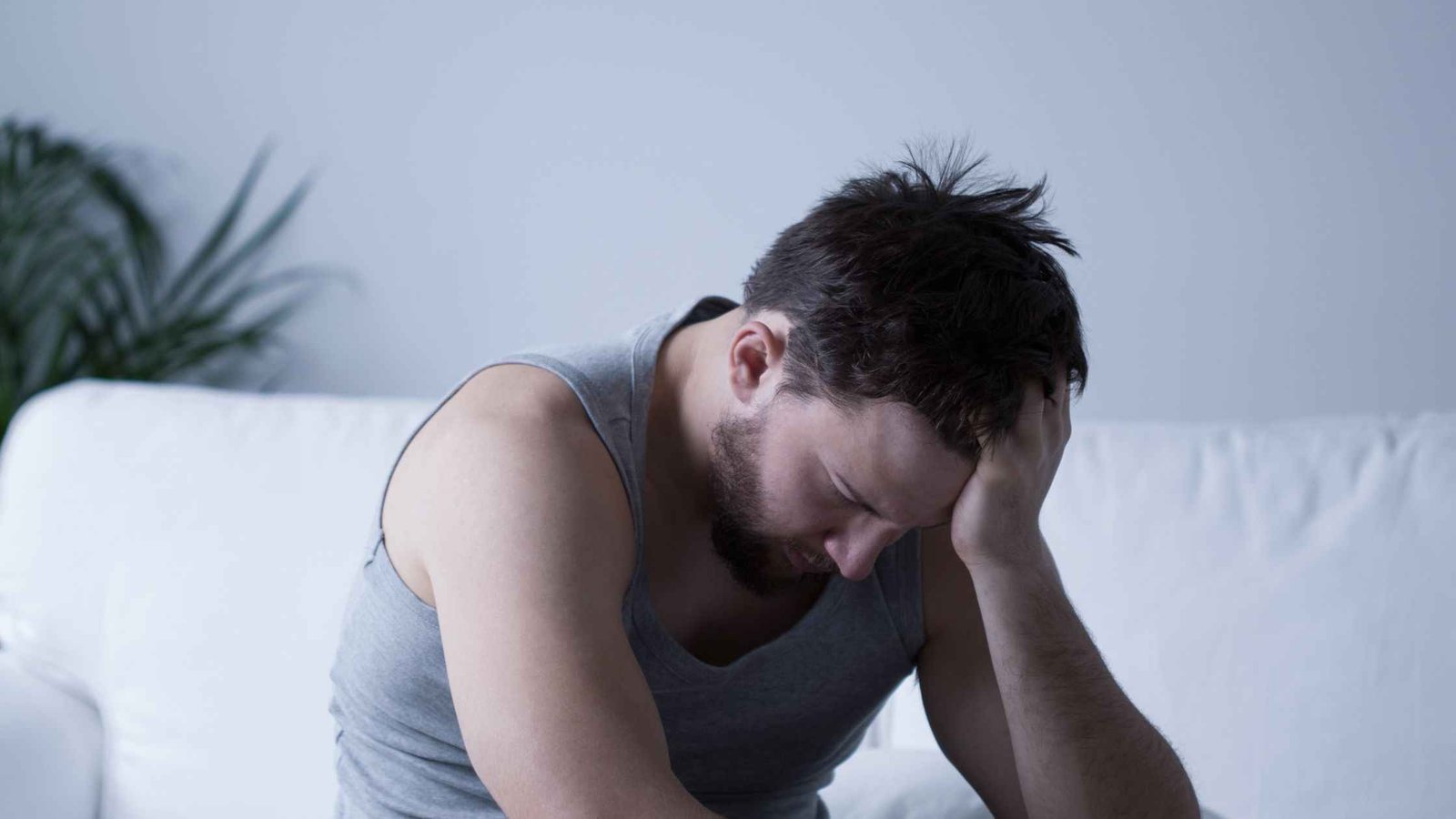The Best Sleep Hacks Without Resorting to Sleeping Pills.

If you often go to bed exhausted at the end of a long day only to toss and turn until two in the morning, you are not alone. Those who obtain the recommended amount of shut-eye report feeling refreshed and ready to take on the day.
If you know the right method, you can put yourself to sleep in a couple of minutes. Long-term sleep loss increases the likelihood of developing many health issues
Reasons why good sleep is so crucial
Adults typically require at least seven hours of sleep per night. This assures not just good energy levels upon waking, but also healthy mental and behavioral processes. Sleep deprivation has been linked to negative outcomes like forgetfulness, impaired reasoning, slower reaction times, and extreme mood swings.
The difficulty lies in the fact that people can build up a tolerance for sleep loss, leading them to believe they are unaffected by it. However, chronic sleep loss has been linked to an increased risk of serious health problems, such as weight gain, cardiovascular disease, stroke, diabetes, high blood pressure, mental decline, and premature death.
The best sleep hacks for a restful night’s sleep
If you’re having trouble sleeping but would rather avoid medication, try some of these tried-and-true methods.
1. Turn off all electronic devices.
For optimal rest, studies recommend putting down electronic gadgets an hour before bedtime. All the notifications, emails, and phone calls might keep your mind racing, making it hard to wind down and get some shut-eye when nighttime rolls around.
Keep your phone far from your bed or turn on Do Not Disturb if you don’t want to have to get up and answer calls right as you’re about to nod off.
2. Set a regular bedtime and wake time.
When you establish a routine of regular wake-up and bedtimes, you put your body’s circadian rhythm through its paces. The purpose is to synchronize the body’s internal clock with the daily sunrise and sunset.
The quality of your sleep will naturally increase if you adhere to a regular schedule of waking and sleeping. Poor sleep health was indicated by study participants with erratic sleeping patterns.
Researchers suggest that a lack of regular sleep disrupts the body’s circadian rhythm and causes a decrease in the amount of melatonin produced by the brain. Improving your sleep health is as simple as sticking to a regular sleep schedule, weekdays and weekends included.
3. Don’t take extended naps during the day.
Try to limit the number and length of your naps during the day if you have difficulties falling asleep at night.
While it’s true that catching a few winks here and there might be helpful, daytime snooze sessions that go too long can throw off your body’s circadian rhythms. Similar research found that nappers reported feeling sleepier overall during the day.
According to new research, even brief sleep of 30 minutes has a positive effect on cognitive performance during the day. The quality of nighttime sleep is negatively impacted by extended naps.
You don’t have to worry, though, as long as you’ve been napping during the day and getting enough sleep at night. If you’re having trouble sleeping at night, however, cutting down on your daytime naps may help.
4. Limit your caffeine intake after sunset.
Caffeine improves alertness, and it has other health benefits besides. Caffeine may be beneficial in the morning, but drinking it too close to bedtime might keep your nervous system stimulated and prevent your body from entering a restful slumber.
Research shows that consuming caffeine within 6 hours of bedtime significantly degrades sleep quality. You should avoid coffee after 3:00 PM or switch to decaf after 4:00 PM.
4. Reduce your nighttime fluid intake.
Nighttime urination is a problem for some people. “Nocturia” is the medical term for this problem. This is not only annoying but also has a negative impact on sleep quality. Avoiding fluids for at least two hours before bedtime is one simple method to avoid this issue. Staying hydrated during the day is essential.
You should also make an effort to use the restroom before bed. If the nocturia persists and causes significant distress, medical attention should be sought.
5. Invest in a high-caliber bedframe and mattress.
Having a high-quality mattress that gives the right amount of cushion and comfort while supporting your natural stance and spine posture makes for a far more restful night’s sleep.
Before buying a new mattress, one should take into account their height, weight, body type, and favorite sleeping position. Try to spend at least 10 minutes in your preferred sleeping position on the mattress(es) you’re considering.
6. Nap in complete silence and darkness
A small amount of ambient light can disrupt our circadian rhythms and negatively impact our quality of sleep. The faint light of an electronic alarm clock, for example, could keep you awake.
If you can’t turn off every light in the room, a comfy eye mask might help. In addition, you should wear loose, comfortable clothing and keep your bedroom at a comfortable temperature.
7. Get in a hot shower right before bed.
A hot bath or shower just before bedtime is another tried-and-true method for easing into slumber.
More than merely helping us wind down for the night, the heat of a bath can really alter our core temperature, putting us in a better physiological state for slumber. You’ll have a more restful night’s sleep, and you might even wake up looking better. If you take a shower before bed, you can sleep easier knowing that your sheets will stay clean for the duration of the night.
7. Military Approach
Now try not to panic. Although this is where it originated, despite its name, deployment does not take place in a conflict zone. Generals and other commanders during World War II were concerned about how the sleep deprivation was wearing down and stressing out their men.
Turning to the experts of the time, a novel method that combines physical and mental relaxation was created. This technique, which was made well-known by Lloyd Winter’s book Relax and Win: Championship Performance, is believed to guarantee sleep in just 90 seconds. Why not try it out? The Military Method is broken down into 7 phases.
All that is required is:
- Intensify your entire face.
- To alleviate tension, droop the shoulders.
- Allow your hands to fall by your side.
- Relax your chest as you exhale.
- Relax your thighs, calves, and legs.
- Give yourself a 10-second mental rest.
- For 10 seconds, keep saying “don’t think” over and over.
8. Don’t let worrying about your lack of sleep affect you.
We are in no way suggesting that you should treat your sleep as though it is unimportant, but at the same time, you shouldn’t let worrying about obtaining enough sleep affect your mood either.
The more worried you are about not getting enough rest, the more difficult it will be for you to actually go asleep or stay asleep.
9. Invest in a new pillow.
It’s possible that dust mites enjoy your pillows as much as you do. According to The New York Times, some people develop allergic reactions to the accumulation of these pests, making it more difficult to get to sleep at night. As stated on WebMD, it is recommended to replace your pillow every 12 to 18 months.
You should also invest in a decent pillow to ensure a restful night’s sleep. For instance, those who sleep on their stomachs want very flat, thin pillows, whereas those who sleep on their sides require something a little harder to bridge the gap between their ear and shoulder.
10. Breathe
The answer is yes, breathing can aid sleep. According to Dr. Michelle Gordon, CEO of Northern Westchester Surgical Associates in Putnam Valley, New York, the 4-7-8 approach can help you fall asleep by distracting you from any worrying thoughts that may be keeping you awake.
Simply press the tip of your tongue against the back of your upper front teeth and breathe in the following manner: 1) Take a four-second deep breath in through your nose. 2) Stop breathing for the next seven seconds. Step 3: Exhale loudly for 8 seconds, generating a “whoosh” sound. Do that three times.
When you’re feeling anxious—like when you can’t fall asleep—this technique will help you relax by increasing oxygen flow to your parasympathetic nervous system.
11. Kick Out the Dog or Cat
This is a tough pill to swallow for many people whose pet is their best friend. Co-sleeping with animals is a practice that dates back thousands of years, but it also has certain drawbacks. Humans can contract some of the parasites and germs that cats and dogs carry, which can result in skin infections and worsened allergies.
A pet who doesn’t sleep through the night can, nevertheless, disturb its owner’s sleep. A pet cat or dog’s additional heat can interfere with a person’s ability to maintain their body temperature during the night. Last but not least, allowing your pet to share a bed with you can sometimes have an impact on their psychology, making them too protective.
Ask your pet to sleep on a ground-based bed. If that doesn’t work, let them sleep on a special blanket at the foot of your bed while maintaining consistency with the restrictions.
12. It’s best to refrain from eating too late at night
Avoiding late-night meals is another effective strategy for improving your sleep pattern. Late-night eating disrupts the release of HGH and melatonin, resulting in a poorer night’s sleep. Get in the habit of eating all of your carb-heavy meals at least four hours before bedtime. Indeed, research has shown that low-carb dinners lead to better sleep.
Hormonal balance is severely thrown off when a substantial meal is consumed close to bedtime. Choosing healthier low-carb snacks that may double as natural sleep aids is usually a good idea if you find yourself snacking late at night.
13. Avoid watching movies or intense TV before bed.
Watching television before bed creates artificial light, just like reading does, which will interfere with your circadian clock. More than any other form of artificial sleep, blue light from devices like televisions, laptops, and cell phones has been reported to block the generation of melatonin.
Another problem is that practically everything is now watchable at the touch of a fingertip thanks to the availability of on-demand, streaming television and movies. Since you have to get up in three hours to go to work, it’s simple to get pulled into a binge-watching session. If viewing TV and movies at night is something you enjoy, schedule your evening so it doesn’t happen immediately before bed.
14. Don’t read any e-books
The popularity of e-books has grown over the past few years. They include illuminated screens, making them perfect for reading in the dark before bed. However, it might have a negative impact on sleep.
Young adults were given a physical book and an electronic book to read before bed in one research. The study’s findings showed that the participants took longer to fall asleep when using the electronic book.
In comparison to when they read the printed book, they were also more alert at night and less alert in the morning. These findings imply that e-books might interfere with sleep.
However, there were only 12 participants in the study. Additionally, the study’s design required that participants read both kinds of literature. It is challenging to say whether or not being exposed to both reading situations influenced the outcomes.
There aren’t many reputable studies in this field, therefore additional research is required before any clear conclusions can be made.
15. In your mind’s eye, play back all the things that make you happy.
Visualize a cheerful, relaxing area while you’re resting in bed instead of worrying about stressful stuff.
An imagery distraction was found to help those with insomnia fall asleep more quickly in one study.
This strategy assisted them in preoccupying their minds with positive ideas rather than negative ones before bed.
If you’re having trouble sleeping, try visualizing and focusing on a tranquil setting
16. Reasons to Start Working Out
When considering how to sleep better at night naturally, remember that regular exercise is just one component of a well-rounded routine that includes a healthy bedtime.
On the other hand, avoid exercising right before bed. Insomnia and sleep apnea can be helped by exercising regularly. Exercising is associated with earlier bedtime for many people. Hormones like epinephrine and adrenaline are released during exercise, making you more alert. That’s why it’s best to avoid working out in the evenings.
Nonetheless, there are studies that report no ill effects at all, so it really does depend on the person. Working out not only helps you sleep better, but it also makes you feel better in general.
17. Always act in the same way
In a perfect world, we’d all adhere to a regular sleep and wake schedule. Given the inevitable shifts in our timetables that occur over the course of a year, this can be difficult to do at times. It can be helpful to establish a schedule for your evenings. The first steps are as follows:
It’s crucial to be realistic about what time you can actually go to sleep and get up since, as much as we’d like to, we don’t magically transform into morning people overnight. Think about your present sleeping habits and try to adjust them incrementally.
If you typically go to bed after midnight, it may be unrealistic to expect yourself to nod off by 10 o’clock. Instead, try going to bed 15 to 20 minutes earlier every few days for a couple of weeks to ease into a new pattern.
Keeping the same sleep schedule on the weekends is just as crucial as it is during the week. Establish a weeklong sleeping routine that you can stick to. Even if you find this difficult, try to get to bed within 1 or 2 hours of your typical time. Avoiding irritating cycles of over- and undersleeping can be achieved by limiting shifts in sleep schedules.
Sum Up
It is generally accepted that getting enough shut-eye is crucial to both your physical and emotional well-being. However, despite knowing how crucial it is, few people make an effort to improve their sleep.
While getting a good night’s sleep on a regular basis might help you live a longer, healthier life, chronic sleep loss can contribute to weight gain, cardiovascular disease, type 2 diabetes, high blood pressure, the early onset of diabetes, and other age-related symptoms.
Countless natural methods exist for assisting the body in winding down for the night, answering the question of how to sleep better. Everything affects your sleep routine, so it’s important to do everything you can to make it a priority. The key is to initiate gradual change by forming a few simple routines. After all, even a minor adjustment can have a major impact.







3 Comments